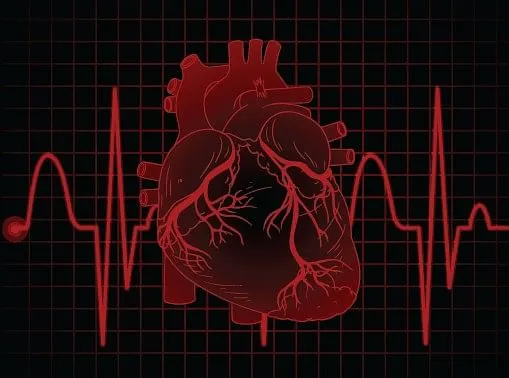Heart and kidney issues in terms of raised serum creatinine levels are often seen in combination in our elderly population. Heart and kidneys have a very important relationship and disease of one organ often leads to the other getting affected.
Unfortunately, it goes un- recognized in most instances making prevention difficult till irreversible damage has already occurred and only palliative measures can be undertaken because it is too late. Having both heart and kidney disease can cause 20 times the risk of death from heart problems than either problem alone.
A modest decline in kidney function can increase the death rate from heart disease by more than 50%. Most patients with chronic kidney disease succumb to heart and vascular problems like heart attacks, heart failure and brain strokes.
Involvement of heart and blood vessels happens very early in the course of kidney disease—so even just a small decline in kidney function should trigger efforts to help protect your heart. In fact passage of albumin in urine even in microscopic amounts is a more lethal risk factor than very high levels of blood cholesterol. As a risk factor it is surpassed only by tobacco use, especially smoking.
Heart and Kidneys Don’t Sleep :
While you can take a break after a hard day, your heart can’t. Its job is to pump oxygen-rich blood from your lungs to each cell in your body, minute after minute, day after day.
If your heart beats at the average rate of about 75 times a minute, this means more than 39 million beats a year! With each heartbeat, blood is pushed through your kidneys for filtering. Kidneys need a constant supply of blood at a normal pressure.
Too little blood or too little pressure can cause acute, sudden kidney failure. Too much blood or too much pressure can also lead to damage to kidneys which can lead to scarring that can cause chronic and often permanent kidney disease.
High Blood Pressure and Diabetes promotes kidney disease
Healthy kidneys “work” with your heart to control your blood pressure. Any time your blood pressure falls, kidneys release the enzyme renin into your blood. Renin signals your liver to make the hormone angiotensin, which tells blood vessels to constrict—raising blood pressure. This renin-angiotensin system (RAS) acts on your heart and your kidneys. An overactive RAS can lead to kidney problems. Cells may grow too fast or too slowly, causing inflammation, hardening of the arteries, and blood clots.
High blood pressure is quite common with a prevalence of at least 33 % . High blood pressure causes damage to arteries of the kidney. These damaged vessels may not be able to deliver enough blood to organs so this can lead to both heart and kidney damage in the form of heart muscle thickening (Hypertrophy) and protein excretion in urine and reduction in the glomerular filtration rate (GFR). This is reflected in elevation of serum creatinine level.
One of the most common causes of kidney disease is high blood pressure and diabetes. A blood pressure control to levels of 130/80 is extremely important for the health of kidneys. It sometimes requires administration of 2 or more drugs but it is crucial.
The earliest sign of kidney involvement in both high BP and diabetic subjects is appearance of albumin in the urine much before elevation of serum creatinine or reduction of GFR. Likewise a meticulous control of blood sugar levels is of utmost importance in minimising the insult to the kidneys.
The connection of blood to kidneys and Heart:
A number of health problems that involve your blood can harm both your heart and your kidneys. One is anaemia—a shortage of oxygen-carrying red blood cells. Kidneys make a hormone called erythropoietin .This hormone signals your bone marrow to make red blood cells. As the kidneys fail, less of this hormone is made, so you make fewer red blood cells. With fewer red blood cells, your body does not get enough oxygen. Anaemia speeds up the rate of kidney failure.
Other blood-related risk factors for heart and kidney problems include:
1 High blood levels of cholesterol – Fat deposits rich in cholesterol crystals can block your arteries and lead to blood clots that can damage your heart or kidneys
2 Inflammation – your body’s response to infection or other injury, which can cause swelling and damage in your blood vessels. This can be reflected as high levels of C reactive protein in blood.
3 Alterations in calcium and phosphorus metabolism
Human body is very complex and we are still in a learning phase about the intricate relationship between the Kidney and heart.
Timely action is the best way of Prevention
Knowing that kidney disease and heart disease go hand-in-hand can help you know what to look for. Take high blood pressure and diabetes seriously and it needs a life long treatment.
You and your treating physician can work together and take action to prevent both heart and kidney disease. Even if it has occurred early recognition and prompt treatment can lead to prevention of serious problems like heart failure and end stage kidney disease. The good news is that both kidney disease and heart disease can be treated to help you stay healthy.
Disclaimer: The views and opinions expressed in this article are the personal opinions of the author.
The facts, analysis, assumptions and perspective appearing in the article do not reflect the views of GK







